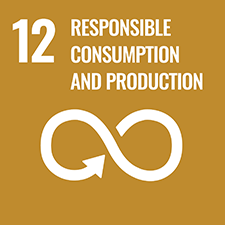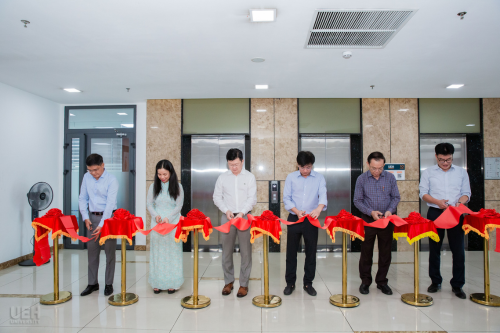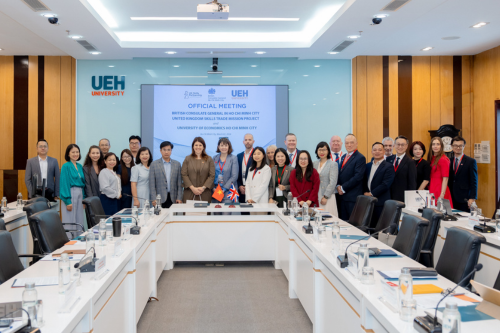
Academic Efforts, Research, and Policy Proposals Supporting Local Communities
18 Jan, 2025
In 2024, the University of Economics Ho Chi Minh City (UEH) made significant strides in scientific research and community service projects, affirming their pioneering role in bridging academic knowledge with local development practices. With 11 ministerial-level projects successfully concluded, 96 institutional-level projects launched together with numerous international community-connected initiatives, UEH has focused on addressing urgent economic, social, and environmental issues, particularly in support of local communities. From research on innovation, digital transformation, and sustainable livelihoods for businesses and residents to international projects on green bonds and gender mainstreaming in infrastructure development, UEH has not only provided practical solutions but also fostered sustainable development and social equity. These efforts underscore UEH university's strong commitment to accompanying local communities, contributing to an improved quality of life, sustainable socio-economic development, and building a solid foundation for the future.
Amid the transformation of Vietnam’s economic growth model, the outcomes of 11 ministerial-level projects successfully implemented by UEH in 2024 have highlighted the role of science, technology, and innovation in enhancing business efficiency. A summary of key policy contributions from these projects in 2024 is presented as follows:
First, research has proposed processes for enhancing the innovation capacity of small and medium-sized enterprises (SMEs) by measuring the effectiveness of influencing factors while analyzing the current state of innovation in private industrial enterprises from 2015 to 2022. From these findings, some suggested solutions include the development of innovation strategies within enterprises and the completion of supporting institutional frameworks aimed at 2030.
Second, digital transformation has been emphasized as a critical factor in building a green economy and improving resource efficiency. Studies have assessed the current state and identified factors affecting the implementation of digital transformation while examining the impact on business performance. The findings provide empirical foundations for policymakers and enterprises to enhance competitiveness and adopt e-commerce, aligning with national digital transformation goals and socio-economic development strategies.
Third, social welfare issues, particularly in healthcare, have been deeply analyzed with the aim of reducing inequities in access to medical services between 2008 and 2018. Policy recommendations include developing grassroots healthcare, expanding health insurance coverage, establishing medical funds for policy beneficiaries, reforming public-private partnership models, and adopting digital technologies in healthcare. These measures not only improve public health but also promote sustainable development and social equity.
Fourth, regarding research and policy advocacy, UEH has conducted numerous practical studies, listed as formulating socio-economic development strategies for Binh Minh Commune (Vinh Long Province), enhancing total factor productivity (TFP) in Ha Tinh, and proposing ocean technology development strategies for Khanh Hoa Province. Notably, recent research has focused on the 2024 Land Law, assessing the law’s impact on the economy, legal systems, and state management. Proposals aim to maximize opportunities and minimize challenges, contributing to sustainable development. In summary, these studies emphasize the importance of innovation, digital transformation, and policy reform within Vietnam's socio-economic development context, while proposing practical solutions for sustainable progress.
At the institutional level, in 2024, UEH implemented 96 scientific research projects, 16 of which focused on addressing local economic, legal, climate change, and poverty alleviation issues.
In the economic domain, topics have covered many topics as follows: The impact of digital transformation on agricultural cooperatives in the Mekong Delta - a critical factor for improving productivity and competitiveness in the context of modern agriculture; Enhancing farmers’ roles in building new rural areas in Ho Chi Minh City; and Analyzing factors affecting household livelihood diversification in Binh Minh Commune, Vinh Long Province. These studies provide valuable insights for policymakers in designing effective interventions. Notably, the report Ho Chi Minh City Economic Recovery and Challenges - a collaborative research publication by UEH and the Ho Chi Minh City Statistics Office - offers a comprehensive analysis of HCM City's economy in the first half of 2024, identifies challenges, forecasts recovery prospects, and suggests policy recommendations for local authorities.
In the legal field, some researchers have examined the current state of land law enforcement and identified areas for improvement at the local level. Studies have contributed to refining legal frameworks for land-use projects to ensure effectiveness and equity, to optimize land financial resources for state budgets, and to adequately compensate landowners affected by project implementation.
In the context of global climate change, studies have assessed the impacts on local livelihoods and proposed adaptive solutions, like green technologies for pollution control. For example, those researches evaluating the effects of extreme weather on child development in Vietnam offer insights to support vulnerable children. Other studies provide empirical evidence of climate change impacts on financial performance in agriculture and food companies, comparing the financial performance of companies in the Mekong Delta Region with the rest of Vietnam when average rainfall increases and sea levels rise.
Regarding poverty alleviation, research has highlighted the effects of microfinance on household livelihoods among ethnic minorities in Vietnam, offering recommendations for socio-economic development strategies. Studies also examine out-of-pocket healthcare costs for rural households in the Mekong Delta, identifying influencing factors.
Concerning international projects linked to community and local development, UEH has been implementing various international projects and activities to connect scientific research with addressing socio-economic issues at the local level. Examples include the Vietnam Green Bond Readiness Program, a collaboration between UEH, the Global Green Growth Institute (GGGI), Vietnam’s Ministry of Finance, and Luxembourg’s government, aimed at long-term green bond market development to support sustainable projects reducing greenhouse gas emissions. On December 4, 2024, UEH's Sustainable Finance Institute presented an overview of the program at a workshop in Hanoi, emphasizing “Sustainable Finance through the Lens of Gender and Social Inclusion.”
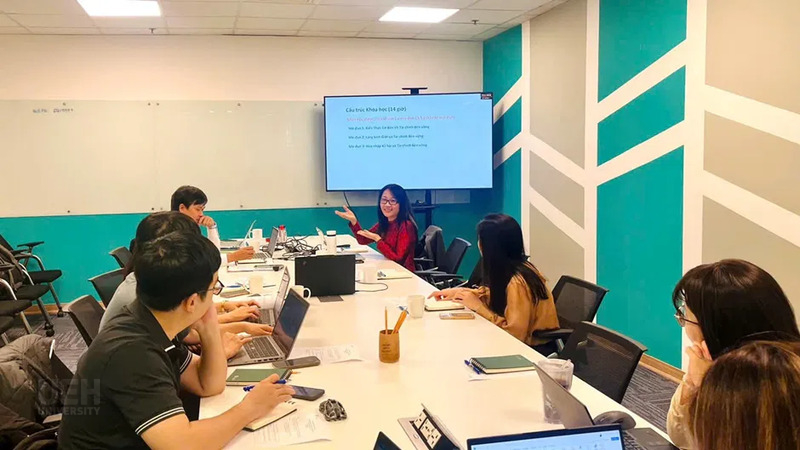
The Sustainable Finance Institute - UEH representative - presented on the topic "Sustainable Finance through the Lens of Gender and Social Inclusion".
In 2024, the project team for "Integrating Gender into Irrigation and Disaster Prevention Infrastructure in the Context of Climate Change in Cu Lao Dung District, Soc Trang Province" (GS4 Infra) collaborated with the Cu Lao Dung District Department of Agriculture and Rural Development to organize a training session on "Enhancing Community Capacity in Cu Lao Dung through Gender Integration in Irrigation and Disaster Prevention Infrastructure." The training session received active participation from local government representatives, social organizations, and residents. Through this training, participants enhanced their awareness of the importance of irrigation infrastructure for their livelihoods. Additionally, the community gained a better understanding of their challenges and feasible solutions. Interactive exercises helped participants develop teamwork and problem-solving skills, and collaboratively contribute ideas to improve local infrastructure development plans.
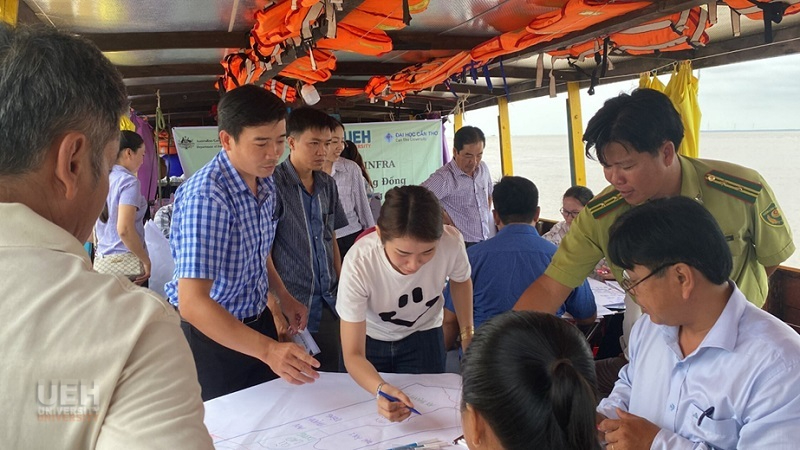
UEH cooperates with local authorities and social organizations to organize training for people in Cu Lao Dung District, Soc Trang Province
In 2024, the CS/2020/209 project, co-funded by ACIAR and IRDC, conducted training and piloted research tools to study food value chains, enhancing the capacity of researchers from Vietnam, Laos, and Cambodia to address food loss.

Vietnamese research team visits the Sao Mai factory in Dong Thap Province
Moreover, UEH has spearheaded projects tackling environmental and social challenges like climate change and poverty alleviation through partnerships with the World Bank, UNDP, and other organizations. These efforts include climate impact studies on agricultural economies and local livelihoods.
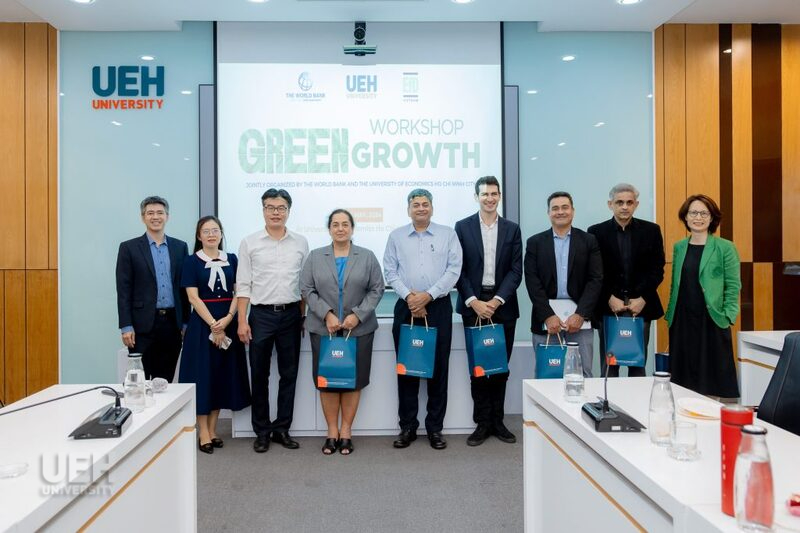
Workshop "Green Growth and Climate Modeling in Vietnam" organized by UEH in collaboration with World Bank
UEH remains an active member of the UN’s Sustainable Development Solutions Network (SDSN), participating in regular meetings and collaborating with international partners on sustainability research.

UEH participates in meeting with the United Nations Sustainable Development Network
Emerging projects like Evaluation of Nature-Based Solutions and Empowering Change further illustrate UEH’s dedication to addressing water security and providing climate change education for female scientists in Ho Chi Minh City.
The year 2024 marked a milestone in UEH's journey toward sustainable and multidisciplinary development. Through academic efforts, research, and policy proposals supporting local communities, UEH continues to focus on practical research addressing urgent local issues while advocating for innovative policies to enhance quality of life and foster sustainable development. These achievements demonstrate UEH's role as a leading university in research, innovation, and sustainability, reinforcing its mission to drive comprehensive local development and to build a sustainable future.
News and photos: UEH Department of Research - Development and Engagement

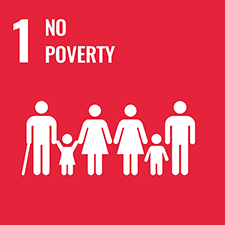
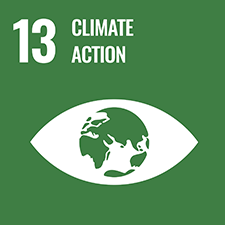




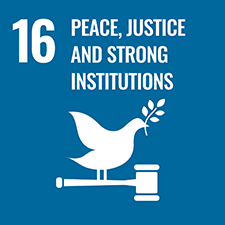
![[Research Contribution] Modernizing and Elevating Vietnamese Higher Education: Creating Breakthroughs in High-Caliber Human Resource Development and Talent Cultivation, Leading Research and Innovation](/images/upload/thumbnail/ueh-thumbnail-639083193174001549.png)
![[Research Contribution] Sustainable Manufacturing: A Driving Force for the Green Economy and the Challenges Ahead](/images/upload/thumbnail/ueh-thumbnail-639082294182922007.png)
